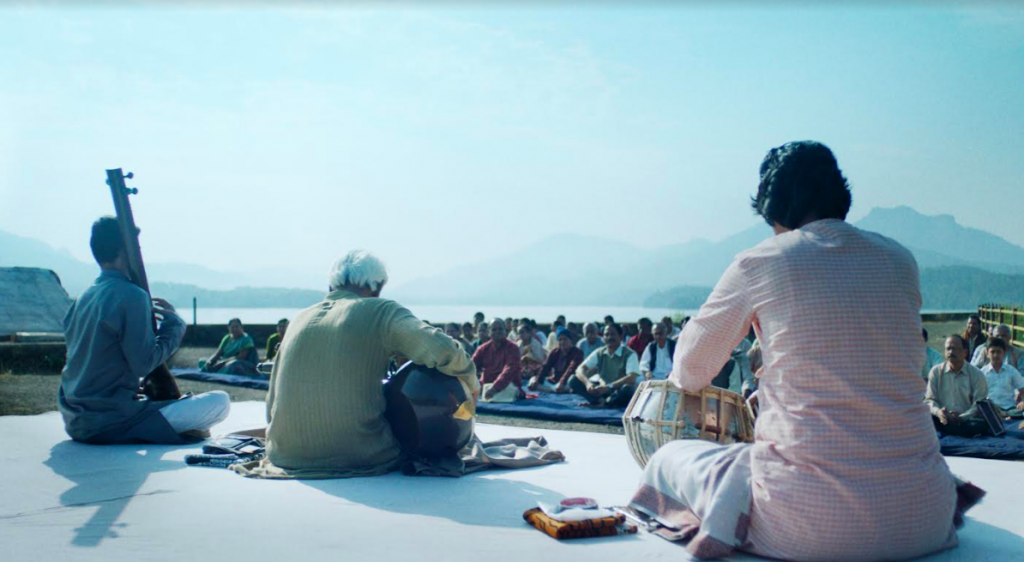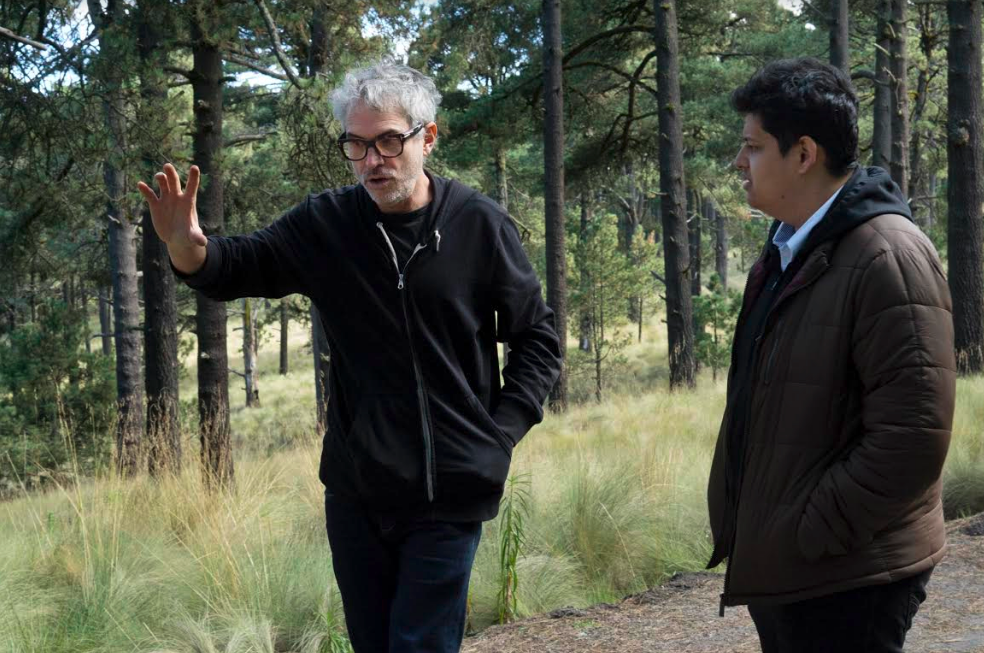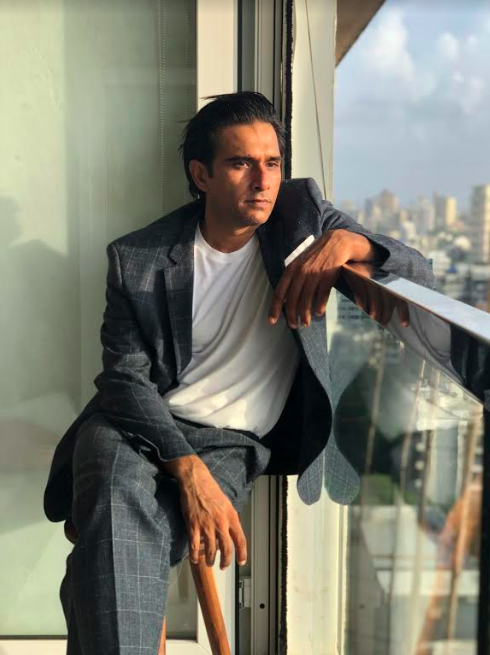
Chaitanya Tamhane’s debut feature film Court premiered at the Venice International Film Festival in September 2014 where it won the best film in the Orizzonti (Horizons) category and the Luigi De Laurentiis (Lion of the Future) award for the best debut.
This September his second film, The Disciple, set in the world of Indian classical music in Mumbai, also heads for Venice where it will be competing in the main Venezia 77 international competition section with the likes of Chloe Zhao’s Nomadland, Amos Gitai’s Laila in Haifa, Kiyoshi Kurosawa’s Wife of a Spy, Majid Majidi’s Sun Children and Andrei Konchalovsky’s Dear Comrades!. Not just that, it is the first Indian film in nearly two decades to be selected in main competition at one of the three major European film festivals (Venice, Cannes or Berlin). The Disciple has also been selected as one of the 50 titles in the Official Selection of the 2020 Toronto International Film Festival.
Between the making of Court and The Disciple, Tamhane was mentored by the celebrated Mexican filmmaker and four Academy awards winner Alfonso Cuarón under the Rolex Mentor and Protégé Arts Initiative. Cuarón has now come on board as the executive producer of The Disciple. Impressed with his “sense of cinema and fearless confidence to tell stories”, Cuarón has called Tamhane “one of the most important new voices of contemporary cinema”.
Tamhane talks to Namrata Joshi on the worlds he creates in his films, his continued fascination with Mumbai, his process of filmmaking and his engagement with Indian classical music through the new film.
§
If one were to look at your first film, Court, as a reference point, what comes across is a strong sense of space and setting and its accompanying culture. Does the setting lead you to the story or does a story demand a specific setting?
The tonality and texture of the two films is different. Court was more fly on the wall. The Disciple is emotional. It is very subjective; you follow one character through the entire film. This film is like a spiritual successor – an adaptation – of a play I had written and directed in which Vivek Gomber [the producer] had played the lead. This was in 2008. Called Grey Elephants in Denmark it was set in the world of magic and mind reading. The protagonist is a magician. I was 21 when I wrote and directed that.
But, to come to your question, it is the setting that comes first and the story later. Setting is what inspires me and fascinates me. In this case it is the world of Indian classical music [which has] all these anecdotes, this rich history and also some eccentric characters. I also feel it [classical music] is one of the few art forms in India where artistes strive for true perfection.
The setting comes first and then I start researching like a journalist. I go to people’s houses; I hang out with them. I try and find out what’s happening in their lives, I stalk them on social media. I watch documentaries, films. I read books. I go into it with an open mind. I don’t have any agenda. I am not looking for a plot. I am not looking for conflict. But I am aware of the themes I want to explore, and the themes also emerge from what you encounter in real life.
Before you start out, you have a certain perception in your mind about the what and how, and then all of it gets challenged. The themes, observations and realisations emerge from that journey.
Of course, you need depth, you need persistence. It’s not something you do for two or three months and say, okay, I get it now. I spent a lot of time to understand [classical] music as well because I am not trained as a musician. You need some education to even appreciate Indian classical music.
Also read: Ivan Ayr, Sushma Khadepaun Talk About Their Films Heading For the Venice Film Festival
Both Court and The Disciple have not been your worlds. How was it to enter these zones?
Yes, these are not worlds I am familiar with. At the same time, both the scripts are very personal. It becomes like a marriage of the inside and the outside. The theme that I am essentially exploring and the kind of truth that I am striving for [in any setting] are personal to me.
Court came in 2014 and it’s 2020 now. You don’t seem to be in a hurry.
Court has had a long journey, which was great. It went to a lot of festivals and then there was the Oscar campaign happening. Then, there was the mentorship initiative of Rolex where I was part of the process of [Alfonso Cuarón’s] Roma. Things took time because I was also figuring out what was happening. But I do take time working on a film. I don’t want to rush anything.
Also read: Rendering the Invisible Visible – the Magnificence of Alfonso Cuarón‘s ‘Roma’
On a script level, [it’s] just to philosophically explore the different facets. The scripts are so personal to me that I am [constantly] growing with them, dying a hundred deaths. It’s internal – a very torturous, very bloody, very difficult, very arduous process of writing. You don’t want to settle for easy answers.
Both the films don’t fall into any genre. Even though you may say Court is a courtroom drama in a way, it doesn’t have the usual tropes. In this case [The Disciple] also there is no fixed template. I am genuinely trying to discover something. That process of exploration takes a while for me. I wish I was faster. Maybe I will write another film in which I am not searching and not starting completely afresh.
If this long process gets two of your films straight into the Venice Film Festival, it seems to be well worth it.
It’s a risky proposition putting five years into a film. If it is not good, then boom, you have five years [and] a failure behind you. But then I don’t know any other way of doing it. I would if I did.

A still from ‘The Disciple’.
Court was about Mumbai and its many subcultures—the judiciary, the Marathi middle-class milieu, the world of Dalit activists. What locale is The Disciple set in?
It’s set entirely in Mumbai and is in Marathi. Mumbai is a city that I can’t get enough of. It is constantly corroding and changing, bursting at the seams. And yet you find so many interesting subcultures, spaces and niche groups co-existing. One of my favourite things, pre-COVID, used to be to go on a long drive with a friend at 2 or 3 am. Every single time I would be amazed by what I would find.
This film is set in a very specific subculture of Indian classical music. As someone who didn’t know much, in the beginning my questions used to be, is Indian classical music struggling to survive, is it dying. While researching I realised what a dynamic and vibrant [classical music] circuit the city has. Most of it is not part of the mainstream.
What kind of music did you grow up on? Are you musically inclined at all?
In filmmaking, rhythm plays a huge part and I often associate script-writing, editing or film construction with music. It is like composing music. It is a musical act for me.
I didn’t grow up in a culturally inclined family. I was born in a chawl in Prabhadevi and grew up listening to Hindi film music and a little bit of Western music. But once I started listening to Indian classical music, I became addicted to it.
When I was young, I used to be wary of Indian classical music because of the things surrounding it – extreme reverence, certain right-wing ideologies. I didn’t want to go near it. But over the years I learnt to separate the two things. There is genuine genius and beauty in that music, and it is amazing how it has evolved over the centuries, absorbing elements from other traditions such as Persian music and Western music. You have to listen to it live. When I started attending live concerts, that’s when I started to understand the real experience and beauty of it.
You talked about the aspect of rhythm in filmmaking. Court had its rhythm and now there is the rhythm of a film which is itself about the world of rhythms. What challenges does it throw at you?
I think [Ingmar] Bergman has this quote about shedding skin. When you start a new film, you have to let go of all the baggage, what you’ve done in the past. It’s a new battle. It’s a completely different story and the story tells you what its rhythm is rather than you trying to enforce a certain rhythm or style. I feel one has to be sensitive enough to understand what the story demands.
That’s why they say that a film is written three times—once on paper, then during the shooting and finally at the editing table. That rhythm is not constant; you have to keep finding it. It keeps evolving and changing as other elements – your sound design and editing – come into play.
Also, I have grown personally as a filmmaker. I was 25 when I made Court and 30-31 when I shot The Disciple. I have changed as a person; I don’t know for better or worse.

Chaitanya Tamhane: “There is no such thing as realism. Everything is an impression.”
How did you go about the soundtrack?
Anish Pradhan, the famous tabla player, writer and historian, has designed the music for the film. Even though you will find traditional ragas being performed in the film by musicians, for the most part it had to be customised for it, [had to be] appropriate for cinema – having the dramatic tension of the sequence in which it was being performed. It had to be economical in terms of time but not misrepresent Indian classical music.
Anish Pradhan has done a great job of being open and sensitive to what the script required, working with the musicians to design the music.
Of course, there is music being performed in individual sequences, but as a whole it creates an atmosphere, as if you are setting out on a journey. It’s a fiction film and not a concert or music video, but you still have to be very careful about those elements. He has been a great collaborator in that sense.
A standout aspect about Court was the detailing, how real it was.
I always say that there is no such thing as realism. Everything is an impression; it is constructed reality and should ideally be serving the narrative.
I don’t think The Disciple is necessarily realistic. It has a romantic texture to it, according to me, and a slightly nostalgic texture in some parts. The detailing is important to me but evoking the mood takes priority over it.
If we go to a place and put the camera somewhere, that’s documentation. But every detail has to be constructed in a mise en scene on the screen. Of course, we do a lot of research and replicate that with authenticity. But we – I mean the production designer, the costume designer, and the cinematographer – are aware that we are doing it for the medium of cinema and are at the service of the story.
Also read: In Tamil Nadu, a Movie That Says Dalits Are Waging ‘Love Jihad’ Draws Crowds
There was a professional actor like Geetanjali Kulkarni in Court, but many of the actors were non-professional. How is it in The Disciple?
This time there are no professional actors in the primary cast. Most of them are musicians who are facing the camera for the first time. Then there are some non-professional actors – writers or directors or cinematographers. We thought it would be easier to get musicians to act rather than the other way round! It was a huge task. There was the language barrier, the look had to be correct, they had to sing well and also act well.
Court had an acute sense of politics. Classical music also has its own politics. Do you fight shy of it in the film or take it head on?
I would want to discuss this after you have watched the film.

Mentor Cuarón and protégé Tamhane. Photo: Chien-Chi Chang/Magnum Photos; Courtesy: Rolex Mentor and Protege Arts Initiative
Coming to the obvious question. You had a stint with filmmaker Alfonso Cuarón. And now he has come on board as executive producer of The Disciple. How did the synergy between two creative people so rooted in their own cultures come about?
We met during the Rolex Mentor-Protégé Arts Initiative and the relationship extended way beyond the programme. We have known each other for four years now and he has been very supportive and generous.
Watching him at work, being a part of Roma, and the conversations with him definitely changed me as a filmmaker. It expanded my vocabulary as a filmmaker. He has pushed me to be fearless, demand the best, to never underestimate myself and never let limitations or lack of resources be an excuse for anything. He would be like, “Stop calling it a small indie film, stop calling yourself a small, independent filmmaker. There is no such thing.”
Even at a practical level, he helped me so much. He saw the rough cut, read the script, and recommended a cinematographer. And now he is putting his name out there with the film, which is a natural extension of the rapport we shared over the years and the faith he has shown in me and the film. I keep thanking him and he says, “Don’t thank me, thank the film. I am doing this because I like the film.” I can only be grateful and feel blessed that he has shown this kind of support.
Also read: Pa. Ranjith: My Courage Comes From Babasaheb Ambedkar
So, you are also a ‘disciple’, then, of Cuarón?
We thought this would come up even when we were deciding the name of the film! But he has always treated me like a friend and collaborator. He is very relaxed that way. He acknowledges the fact that I am on my own journey. He always refers to it [the mentoring initiative] as a dialogue between two artistes. He has been generous enough to place me at the same level [as him] but I am actually not. I definitely consider him as one of my gurus.
The indie space Cuarón referred to, about not getting restricted or compartmentalised by that category – how do you yourself see it?
What Cuarón said has to be understood in its context. When you are working on a low budget and know your context and limitations only too well, you start limiting yourself mentally even before you have attempted something. You start limiting your vision itself. It’s a bit like self-censorship in that sense. That’s where he is coming from. He wants me to demand [more of myself] and not underestimate myself. It’s not about ghettoising but being demanding and fearless.

Producer of ‘The Disciple’, Vivek Gomber.
But isn’t it also liberating as an indie filmmaker to not be bogged down by the commercial constraints of the mainstream?
I have just one explanation for that – Vivek Gomber, the producer. It’s so rare for someone to put their own money [like this on a film]. I think he hid it from me, but I have a feeling that he sold some properties to make this film. He is the most insane, the craziest and the bravest producer I have seen.
Before we had shot even a single scene of Court someone told him that the film’s budget was too high for a first time filmmaker. He [Gomber] told that person, “I want the world to know that I am the guy who produced Chaitanya’s first film!” That’s the kind of faith he had in me when I was 24. I have been blessed to get this kind of unconditional financial support, to have someone place so much faith in me. There is no interference [from him], no conditions whatsoever. He is also a part of the creative choices we make.
Namrata Joshi is an independent writer and well-known film critic. She is the author of Reel India: Cinema off the Beaten Track (Hachette, 2019).





